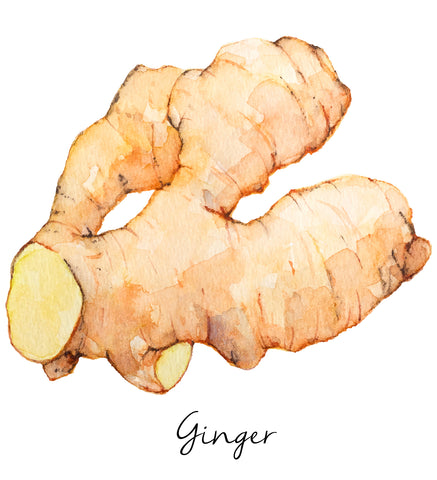 If it’s 2 a.m. and you just have to have a plate of brownies with a side of roasted turkey (and mustard), then you’re probably expecting more than just a strange flavor combination. Pregnancy cravings are famous for being bizarre, but often the most delectable snacks can be both high in sugar and lacking nutrients.
If it’s 2 a.m. and you just have to have a plate of brownies with a side of roasted turkey (and mustard), then you’re probably expecting more than just a strange flavor combination. Pregnancy cravings are famous for being bizarre, but often the most delectable snacks can be both high in sugar and lacking nutrients.It’s no secret that proper nutrition is essential for growing a healthy baby, but getting your recommended daily allowance of vitamins and minerals can be difficult, even with the healthiest diet. That’s why supplements are so highly recommended during pregnancy, as they help ensure that you and your baby are getting the maximum benefit from vital nutrients. But how do you sort through the multitude of dietary supplements on the market to find what’s best for you and your little stomach-kicking ninja?
The good news is that now you don’t have to! While there are a slew of helpful supplements out there, we’ve sorted through the pile to help you discover the top four supplements to focus on for supporting a healthful pregnancy.
1. Prenatal multivitamins
Prenatal multivitamins are a wonderful supplement to help give your baby (and your body) the proper nutrition needed to support a healthy pregnancy. We can’t always guarantee that we’re getting enough of these nutrients in our diet, so a daily multivitamin is a great way to bridge the gap. No wonder so many health practitioners recommend them!
Unfortunately, the truth is that not all prenatal vitamins are created equal. From nutritional value to quality of ingredients, it’s important to know what to look for when choosing a prenatal vitamin.
Many generic brands are actually missing basic essential nutrients or offer lower quality, synthetic versions of these nutrients that are less bioavailable in the body. Choosing a food-based prenatal vitamin from natural brands such as New Chapter, Garden of Life or MegaFood will ensure that you are serving both yourself and your little nugget optimal fuel for premium health.
You will also notice that food-based vitamins contain folate, whereas most lower-grade prenatal vitamins opt for its synthetic counterpart—folic acid, which may actually be difficult for your body to metabolize. Additionally, many generic prenatal multivitamins may not contain an important component, vitamin D3, which encourages healthy bone development and immune function from birth through adulthood.
You might also be interested in hyperbiotics effect on immune system, check our blog - Hyperbiotics Immune.
2. DHA & Omega 3
During the last eight weeks of pregnancy, your baby’s brain is growing faster than ever. Research over the past 20 years shows that even mild degrees of malnutrition during the last few weeks of gestation can adversely affect this phase of the baby’s brain development.1 The same research indicates that high-quality fish oils (such as Nordic Naturals brand) are a great choice during this time as the brain cells are connecting rapidly. Some studies have shown that taking supplemental DHA supports hand-eye coordination, motor skills, IQ levels, and even attention span.2
3. Calcium and Magnesium
If you have a bottle of prenatal vitamins sitting on your shelf, grab it and look for calcium and magnesium on the label. You may notice that your prenatal vitamin contains a small percentage of the recommended daily value for these two nutrients, so it’s a good idea to supplement with a food-based version such as Garden of Life’s Raw Calcium. These nutrients help to maintain healthy insulin and blood sugar levels and encourage your strong, healthy baby as she develops. What’s really interesting is that these nutrients work in tandem: magnesium relaxes muscles while calcium stimulates muscles to contract, helping the uterus prepare for childbirth without contracting too early. Nature really does have a way of keeping things perfectly balanced!
4. Probiotics
While all of your relatives and friends are ohhhing and ahhhing over your newborn’s tiny hands, feet and nose, they probably aren’t thinking about his or her little gut environment. Mostly sterile until birth (when they are inoculated by your bacteria during the birthing process, skin-to-skin contact, and first foods), the makeup of your newborn’s gut is influenced by external factors like your diet, the mode of delivery (C-section or vaginal birth) and the microbes in breastmilk or formula.3 Taking probiotic supplements while pregnant and nursing replenishes your microbiome so that you can pass that good bacteria on to your little one, encouraging your baby's thriving microbiome, also known as your child’s foundation of health.
In addition to supplementing with a quality probiotic, it’s a good idea to focus on fermented foods like kefir, miso, and sauerkraut, as they too are rich in naturally occurring probiotics. What’s more, probiotics help empower mom’s health by encouraging proper nutrient absorption, helping to increase the odds of successful breastfeeding, and supporting the immune response of both mom and baby.
With powerful probiotics, you can lay the groundwork for your baby’s good gut health even before their arrival. Probiotics can truly be a prenatal vitamin’s best friend as they function in harmony with all of your other supplements.
Pregnancy Woes? Check out these Specialty Supplements

From the day that positive sign appears on a pregnancy test until the moment you finally hold your little one in your arms, pregnancy is a roller coaster that brings its own unique experience for each woman. While it’s a good idea to avoid taking medication that can harm the beneficial flora in your gut, many pregnancy-specific ailments can be prevented and even treated effectively with other natural supplements.
For morning sickness and occasional nausea, supplements of ginger or vitamin B6 can help you feel less queasy. Similarly, many women find relief from nausea in the form of organic ginger chews or drops. Healthy Mama’s Nip the Nausea! Organic Morning Sickness Drops is one of our top picks when morning sickness strikes.
If ginger doesn’t seem to do the trick, many moms and midwives also recommend acupuncture, and there is more evidence to support its effectiveness at treating morning sickness than any other condition.
Prevent stretch marks by taking care of your skin from the inside out. Nurture your body’s largest organ by staying well hydrated and eating lots of foods rich in vitamin C, such as red and green bell peppers, blueberries, kale, broccoli, and guava. Another natural prevention for stretch marks is consuming bone broth. Simply drink a warm cup of it every morning, or incorporate the broth into your cooking to add flavor and nutrition.
And if you’re plagued with dry or itchy skin during pregnancy, natural moisturizers like organic coconut oil or shea butter are safe and healthy options to support your growing belly and stretching skin.
Finally, prepare for birth by drinking red raspberry leaf tea. With a rich variety of vitamins, this tea is known for strengthening uterine muscles, toning the pelvic floor, and assisting in breastmilk supply. It also promotes healthy ovaries, nails, bones, skin, and teeth.
Every mom wants to do all she can to contribute to a healthy and happy baby. Thankfully, with proper diet, nutrition, and the right supplements, you can care for your new little one with confidence.
Did you find this article helpful? Then consider checking - When you’re pregnant, hungry, and in a hurry.
References:
1. Georgieff, M. (2007). Nutrition and the developing brain: nutrient priorities and measurement. American Journal of Clinical Nutrition, 85(2), 614s-620s.
2. Lauritzen, L., Brambilla, P., Mazzocchi, A., Harsløf, L., Ciappolino, V., & Agostoni, C. (2016). DHA Effects in Brain Development and Function. Nutrients,8(1), 6.
3. Urbaniak, C., Burton, J. P., & Reid, G. (2012). Breast, milk and microbes: A complex relationship that does not end with lactation. Women's Health, 8(4), 385-398.
___________________________________________________________________________________________
Julie Hays is the Communications Director here at Hyperbiotics. Health writer and mama of two little girls, Julie's on a mission to empower others to live lives free of the microbial depletion many of us face today. For more ideas on how you can maximize wellness and benefit from the power of probiotics, be sure to subscribe to our newsletter.

